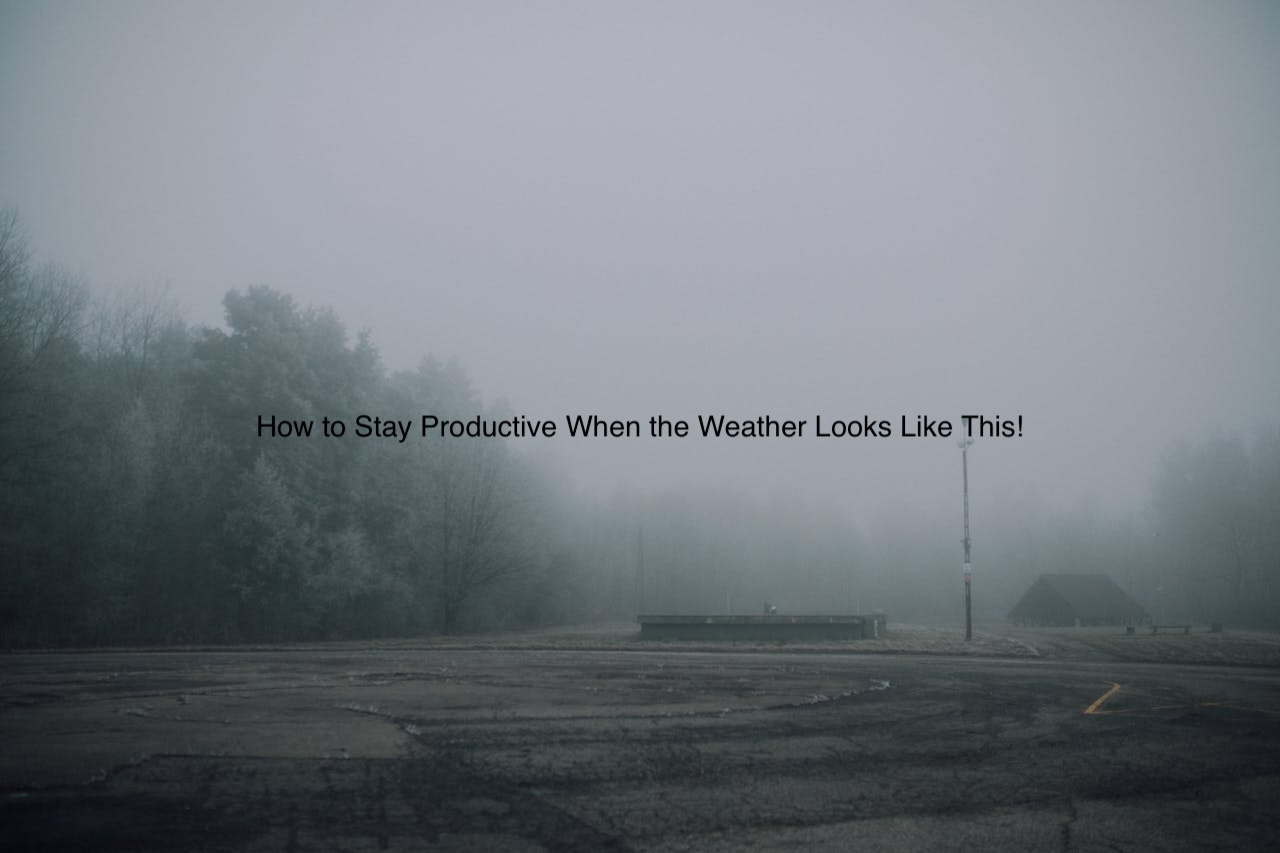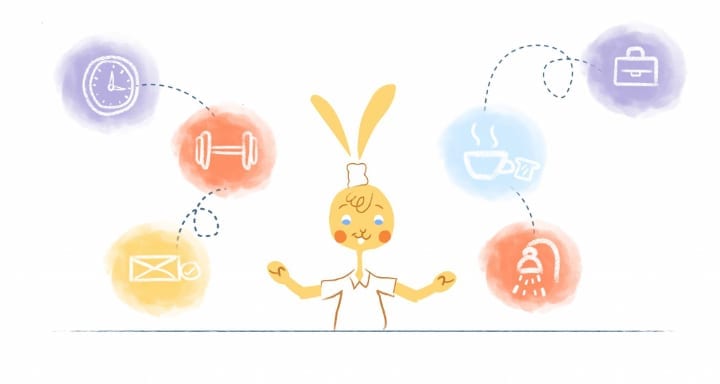

As winter nears, the days grow shorter. It’s dark when you awake in the morning and when you come home from work. You may feel like it’s impossible to get everything done on your to-do list. However, the days aren’t shorter, just darker.
The winter months make it difficult to stay productive and motivated. Yet you still have as much work that needs to be done. How can you power through, even when the sun sets so early in the day? While it will take a little effort, it is worth it. Use the following tips to feel alert, upbeat, and productive during the cold winter months.
1. Decorate to Make the Most of the Daylight
Whether you work from home or in an office, you can make the most of the sunlight that enters the building. Take note of where the sun enters the rooms. Windows that face the south will receive the most daylight. So, try to place your desk near a window that gets that constant natural light.
Windows play an important role in enabling sunlight’s benefits, such as improving alertness and mood. You can redecorate your office to make the most of the available windows. First and foremost, make sure that the glass panes are clean. They may look clear, but once you wipe them both inside and out, you’ll be surprised at the dirt you remove. This simple action can significantly increase the amount of light that will enter your office.
You can boost the light levels in a room by adding mirrors across from the window. The light will bounce off the reflective surface and back into the room, lighting up dark corners. Install light-colored curtains that let the sunlight in while still maintaining privacy. Include blinds or thick drapes that can be opened in daylight and closed at night. You can also improve room light levels by trimming trees and shrubs outside. They may be blocking the window, inadvertently limiting your exposure to sunlight.
2. Get Outside
It’s not just dark in the winter months; it’s cold and sometimes snowy. That’s reason enough to stay indoors, right? A 2022 study showed that exercising in a natural environment as compared to an urban setting was more beneficial. It reduces anger, decreases anxiety, boosts energy, and leaves you feeling positively engaged. Not only that, being in nature also helps alleviate seasonal affective disorder. This condition is a depression that rears its ugly head in the dark days of winter.
Going outside may seem like a struggle against the cold. However, the increased exposure to natural light will lift your mood and clear your mind. You’ll be better prepared to finish the workday strong after walking in the winter wonderland. So, bundle up, step outdoors, and go for a power walk on your lunch break. Take the kids sledding on a Saturday afternoon. Don’t just watch, either. Grab a sled and feel the refreshing experience of the wind in your hair as you glide down the hill. Take your significant other for a nature hike on a clear, sunny day. Stop halfway through the hike to share a thermos of hot chocolate and listen to the birds chirp.
But you don’t need to exercise outdoors to benefit from being in nature. It doesn’t matter your age; build a snowman complete with a carrot nose and a knit beanie with a tassel on top. Bring your binoculars and bird watch to a nature center or nearby park. Or bring a sketchbook and draw the stunning snowy scene before you. Gather pinecones, evergreen branches, and other bits of nature to make a unique wreath. Spending an hour outside daily will charge your batteries and refresh your mood.
3. Take Vitamin D
You should add a vitamin D supplement to your daily routine during the winter months. Why? For starters, vitamin D is essential for increasing calcium absorption in the body and strengthening bones. But beyond that, it has been associated with treating symptoms related to depression, cardiovascular health, and even cancer. However, 41.6% of Americans have a vitamin D deficiency.
In the winter months, that number may even increase, as one of our primary sources of the vitamin is the sun. When the sun hits your skin, the UVB light activates the production of vitamin D in your body. However, not only is there less daylight hours in the winter. There’s also less of our skin exposed to it because we bundle up against the cold. The Weather Channel notes how the sun is lower in the sky during the colder months of the year. This makes its UVB rays weaker. They are so weak that they may be unable to synthesize vitamin D in locations north of Los Angeles or North Carolina.
Vitamin D supplements will help your body maintain the required levels of 600 international units (or 15 mcg). You can also increase your vitamin D amounts by eating sources of it in foods. Try tuna, salmon, fish liver oil, beef liver, mushrooms, and fortified milk and cereals. You shouldn’t worry about getting too much vitamin D, as it’s difficult (but not impossible). However, most people need to take a supplement because they cannot reach adequate levels of it by food alone.
4. Stay Hydrated
Your hydration level affects many aspects of your life, including physical performance, weight loss, and brain function. However, many people don’t realize that it can impact your productivity. Just a 1% drop in your hydration level could result in your productivity dropping as much as 12%. So, if you have a busy workday and want to stay on track, drink plenty of water.
Over half of the human body is made up of water. So, it makes sense that you need to keep hydrated to maintain peak performance. Dehydration interferes with your reaction time. According to Office H2O, it can slow your response time in the same way a .08 blood alcohol content would. Driving with this level of alcohol in your body results in being five times more likely to be in an accident. So, imagine how dehydration can affect employees. They are more likely to experience a safety incident and are more prone to mistakes.
Water loss can come from a busy workload and high stress within the workplace. It also commonly is a result of air conditioning. Since air conditioning units zap the atmosphere of water, they cause the body to release it from the skin and lungs. Workers who don’t drink to replace it may experience decreased concentration, more headaches, and a general tiredness. These symptoms all affect productivity.
Staying Productive During the Dark Winter Months
In the winter, it just feels like there’s less time to finish tasks. The sun sets so early. You just want to curl up on the couch, tuck your feet under a blanket, and binge-watch your favorite show. But there’s still as much to do as during the summer months. It’s easy to get behind, causing undue stress.
Instead, take advantage of these tips for continued productivity during the short winter days. Improving your energy levels and focus on taking care of your responsibilities will help you feel empowered, even after dark. Update your to-do list using a resource such as Calendar, Microsoft Calendar, or Google Calendar to stay on track. Don’t let the winter months get you down. With the right mindset and deliberate actions, you’ll find that the dark days no longer slow you down.
Featured Image Credit: Photo by KoolShooters; Pexels











Angela Ruth
My name is Angela Ruth. I aim to help you learn how Calendar can help you manage your time, boost your productivity, and spend your days working on things that matter, both personally and professionally. Here's to improving all your calendars and becoming the person you are destined to become!